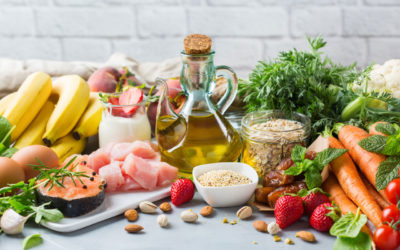By Nicole Wavra, M.P.H., R.D.
We all know the importance of herbs and spices for enhancing the flavors in our foods, but do you know how herbs and spices can enhance your health as well? They have been used for centuries for culinary and medicinal purposes. Herbs like basil, oregano and cilantro are the leaves of the plant, and spices like coriander, cinnamon, and ginger come from the roots, bark, berries, flowers or seeds of the plant.
Cinnamon
Cinnamon is made from the dried and then ground bark of a tree native to Sri Lanka. It contains one of the highest levels of antioxidants compared with other common spices. Research shows that consuming cinnamon may help lower blood sugar levels by slowing the breakdown of carbohydrates in the digestive track and by improving insulin sensitivity. Additionally, it has been shown to significantly decrease fasting blood sugars.
Turmeric
Turmeric is a spice that has been used for centuries especially in the Indian culture for culinary, medicinal, traditional and religious purposes. Turmeric’s vibrant golden hue comes from a substance known as curcumin. Curcumin is also what makes turmeric a medicinal “cure-all,” – thought to aid in oxidative damage, inflammation, brain function, Alzheimer’s disease, heart disease, cancer, arthritis and depression. Curcumin fights free radicals in two ways: It blocks free radicals and it also helps to increase our body’s own antioxidant enzymes. Curcumin has such strong anti-inflammatory properties that it matches the power of some anti-inflammatory drugs but without the side effects.
Ginger
Ginger is a spice native to Asia and is closely related to turmeric. It is most effective at reducing nausea and vomiting due to sea sickness, chemotherapy and pregnancy. Ginger helps the digestive system by relieving flatulence and by relaxing and soothing the intestinal tract.
Rosemary
Read this while eating rosemary and you will most likely remember more of the content due to the positive effect rosemary has on our brain and memory. Studies show that even just smelling rosemary can enhance brain function and memory. In one small study rosemary was also beneficial for reducing allergy symptoms and nasal congestion.
Garlic
Garlic is part of the onion family, also known as the Allium family. Hippocrates prescribed garlic for many medicinal purposes. Today we know that garlic supplements can boost immune function and can help to avoid and to shorten the duration of a cold or flu. Garlic supplements can also help to reduce blood pressure and cholesterol.
Reprinted with permission from Environmental Nutrition, a monthly publication of Belvoir Media Group LLC.









